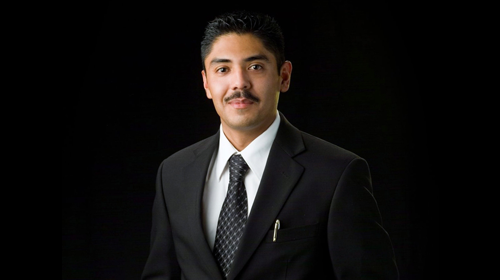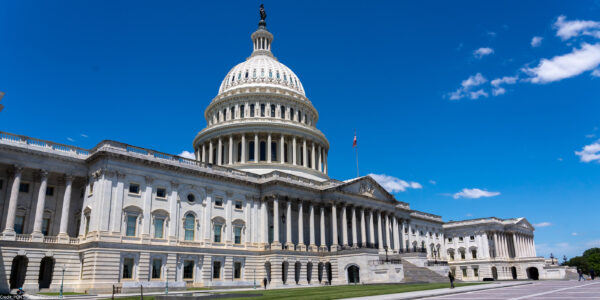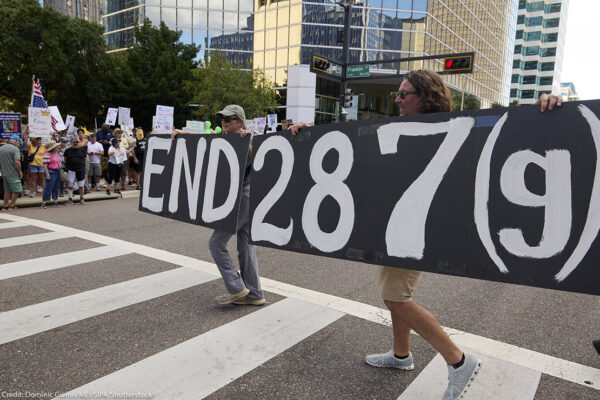
Should an undocumented immigrant be admitted to the practice of law in California? That's the question currently before the California Supreme Court, which will hear argument today in my case, In re Garcia. The Court's ruling will determine whether my dream to become a lawyer—and the dreams of countless other young people like me—will become a reality.
I never anticipated having to face this challenge. Like many DREAMers, I was first brought to the United States at a young age, when I was only 17 months old. I returned to Mexico for a part of my childhood and have lived here continuously since age 17. Although the federal government has approved an immigration petition filed for me by my father, because of backlogs, I've been waiting 18 years for a visa to become available so I can finally get my green card.
In the meantime, I've worked hard to accomplish my life goals. From a very young age I was told nothing in life is impossible as long as one is willing to work hard for it. That was all I needed to dream big. At the young, naive age of ten I dared to believe one day I would be a lawyer. I most certainly did not have a clue as to how I would accomplish that; I only knew I would, or I would die trying. During those early days all I had were dreams and little else. I often went to school in Mexico hungry and embarrassed of my old torn shoes.
As time went by, not much changed financially, but that did not detract from my commitment to my dream. I continued working hard in school and helping my mother at home since my father was in the United States. Eventually and against my wishes I too made the journey back up north. In Mexico I was the president of my school and I was very well-liked and respected by peers and adults alike and did not want to leave.
Over here everything changed—I went from being a big fish in a small pond to an almost invisible fish in a vast sea. However, I did not allow that to thwart my dream, I pushed on and forced myself to relearn English. In high school I was voted the most shy in class: I was insecure, unable to carry a conversation. I kept to myself and just focused on learning the language as well as I could. Once out of high school I purposely took public speaking classes. I had been a great public speaker as a youth and I had to find myself once more.
I eventually did, and once again excelled in college and ultimately in law school. After much hard work and sacrifice, I graduated law school on May 9, 2009. I passed the California bar exam that same year. But four years later, I'm still waiting for my law license.
I see my case as an opportunity for the California Supreme Court to once again become a beacon of hope and lead our nation towards justice and equality. My case presents a unique opportunity to revive the American Dream. For many young immigrants like me, the American Dream has been beaten and battered. With its decision, the California Supreme Court can send the message so young people everywhere can think, "If Sergio, an undocumented immigrant, can make his American Dream a reality, so can I." A positive ruling will have positive effects far and wide on the psyche of our American youth, as both citizens and non-citizens alike need to be able to believe in the American Dream. The opposite will send a chilling message to our youth: Stop trying to fulfill your dreams because no matter how hard you work you will not be allowed to realize them.
I've also been honored by the widespread support I've received from the leaders of the legal profession. All of the parties to my case and nearly all the amici curiae, or "friends of the court," including the State Bar of California, the California Attorney General, seven prominent California law school deans, and numerous bar associations, have championed my cause and stood up to support my admission to practice.
I am confident that the California Supreme Court will not miss the opportunity to become a beacon of hope by granting my license and finally allowing me to fulfill the dream I dared to have as a child. But the Court is not the only voice here. Regardless of the Court's decision, it is within the power of the California legislature to enact legislation reaffirming that the legal profession is open to all qualified individuals, regardless of immigration status. The legislature should act to ensure that all professions are open to everyone on an equal basis.
The ACLU filed an amicus brief in support of Sergio's admission to the California bar.
Learn more about immigration reform and other civil liberty issues: Sign up for breaking news alerts, follow us on Twitter, and like us on Facebook.



